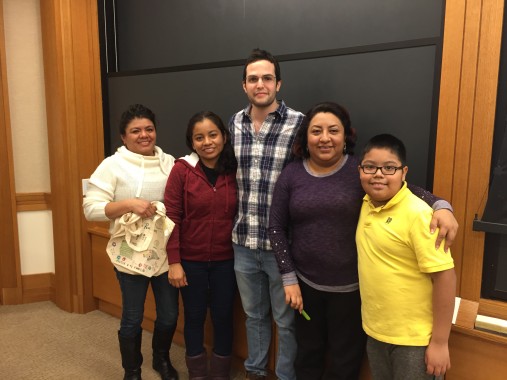Written by Lisa Glickstein, JD ’18 and Secretary-Treasurer of Harvard Food Law Society
Originally posted on the Harvard Food Law Society blog
Who worked to produce your lunch?
On February 9, 2016, three members of the Alianza Nacional de Campesinas (National Alliance of Female Farmworkers) came to Harvard Law School to speak about the injustices that female farmworkers face on a regular basis.The Alianza works to empower and educate female farmworkers about their rights, creating a network of women and organizations that support their interests. Dolores Bustamante, Beatriz Gatica, and Hormis Bedolla each shared poignant stories that illustrate the difficult realities that female farmworkers tolerate while working in agricultural operations in the United States.
Many of these female farmworkers are undocumented, and the constant threat of deportation often prevents them from speaking out when their rights are violated. They described how female farmworkers often experience sexual assault and domestic violence, both at work and at home. However, women rarely raise these issues. Oftentimes, female farmworkers are highly dependent on both their spouses and their workplace for housing and financial support, and speaking out may compromise their job and income security.
often prevents them from speaking out when their rights are violated. They described how female farmworkers often experience sexual assault and domestic violence, both at work and at home. However, women rarely raise these issues. Oftentimes, female farmworkers are highly dependent on both their spouses and their workplace for housing and financial support, and speaking out may compromise their job and income security.
Farm labor is grueling work. While in the field, farmworkers wear large sweatshirts and bandanas to protect themselves from the harmful pesticides used in crop production. In spite of these inherent dangers, they often receive below the minimum wage. The Alianza members explained that they often receive payment through an intermediary, who may take a large cut of their wage. Agricultural workers are exempt from the Fair Labor Standards Act. Accordingly, they are not entitled to overtime pay, vacation, or holidays. They are not allowed to unionize. Given this gross imbalance in bargaining power between farmworkers and their employers, it is difficult for them to object to the frequent labor abuses that they experience.
Nor does law enforcement provide a viable outlet for their complaints. Dolores spoke of a personal encounter with the police, who wrongfully detained her without cause and threatened deportation. She was released only after the Alianza stepped in on her behalf and threatened to expose the police department’s wrongful behavior.
The women shared a simple request with the classroom full of law students: to be afforded the basic human rights of fair compensation, personal health & safety, and freedom from fear of deportation.

Health Law & Policy, Commentary
Cuts to the Federal Workforce and Medicaid: What’s Happening and What Can Advocates Do? – Health Care in Motion
March 12, 2025